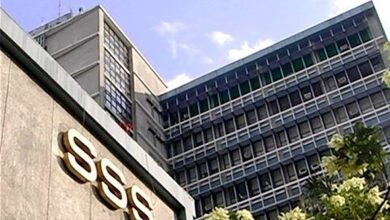Duterte signs P5-T budget into law

A woman gets a booster shot in Marikina on Nov. 25. — PHILIPPINE STAR/ MICHAEL VARCAS
By Alyssa Nicole O. Tan
PRESIDENT Rodrigo R. Duterte on Thursday signed into law the P5.024-trillion national budget — the country’s largest ever — for 2022, as the government aims to drive the economy’s recovery from the coronavirus pandemic.
The 2022 national budget is equivalent to 21.8% of the gross domestic product (GDP) and also 10% higher than this year’s P4.506-trillion budget. The government set a 7-9% GDP growth target for 2022.
About a fifth or P1.019 trillion of the budget will go to capital outlays, which includes infrastructure spending, budgetary support for government-owned and -controlled corporations, and capital transfers to local government units (LGUs).
“This (budget) will also cement this administration’s legacy of real change for future generations guided by the three main pillars of building resiliency amidst the pandemic, sustaining the momentum towards recovery and continuing the legacy of infrastructure development,” Mr. Duterte said after signing Republic Act 11639 during a ceremony in Malacañang on Thursday.
The President also expressed concern the coronavirus disease 2019 (COVID-19) Omicron variant, which is now spreading rapidly around the world, will once again put a strain on state coffers.
“I just hope that we will cope… (I’m worried) the budget will run out to respond to the new challenge of a new variant of the COVID-19,” he said, adding that Congress may need to pass laws to address this looming problem.
“It’s not a matter of predicting how many will die, but rather preparing for how many people that will be affected by this (variant).”
Budget Undersecretary Tina Rose Marie L. Canda said she agreed with the President’s sentiments. “It is scary because the budget was crafted pre-Omicron.”
Asked which items were vetoed, Ms. Canda only said: “Maybe tomorrow, when we see the final version.” A copy of the veto message was not made available as of press time.
Under the signed law, the education sector will receive the largest allocation with P788.5 billion, up 5% from this year’s budget.
The Department of Public Works and Highways will get the second-biggest budget with P786.6 billion, followed by the Department of Health (DoH), including the Philippine Health Insurance Corp., with P268.4 billion.
A total of P88.9 billion was allocated for health facilities and the procurement of drugs, medicines, and vaccines.
The government will spend up to P48.2 billion to buy COVID-19 vaccine boosters — of which P2.8 billion is under the DoH budget and P45.4 billion under unprogrammed allocations. Unprogrammed allocations may be tapped if there are excess revenue collection, new revenue sources or approved loans for foreign-assisted projects.
Also, P983 million will go to the establishment of the Virology Science and Technology Institute of the Philippines to help the government study and address emerging viruses. The Philippine Genomic Information Resource Hub was also given P200 million to sustain its genomic bio surveillance efforts.
The national budget also includes P51 billion for the Special Risk Allowance of health workers.
Senator Juan Edgardo M. Angara, who chairs the Senate Finance Committee, said key agencies’ budgets were “beefed up to prepare for potential outbreaks and any assistance that may be needed by our countrymen.”
“Legislators recast the budget in the second half of the year since initially it did not foresee or anticipate the possibility of new variants like Delta and now Omicron, and we prepared for worst-case scenarios,” he said in a Viber message to BusinessWorld.
The 2022 budget included funding to support displaced workers affected by the COVID-19 pandemic — P26.5 billion for the Tulong Panghanapbuhay sa Ating Disadvantaged or Displaced Workers Program, and P52.7 million for the Government Internship Program.
The Pantawid Pamilyang Pilipino Program was also given a P107.7-billion budget, the Protective Services for Individuals and Families in Difficult Circumstances with P18 billion, and the Sustainable Livelihood Program with P4.7 billion.
Budgetary support for priority education programs included the Basic Education Learning Continuity Plan with P14.7 billion to cover the development, reproduction, and delivery of learning modules, and the Computerization Program with P11.8 billion for the procurement of technological equipment.
The 2022 national budget adheres to the recent Supreme Court ruling on the Mandanas-Garcia case wherein the total National Tax Allotment share of local government units for next year stands at P959.04 billion, higher by 38% than its shares this year.
Also on Thursday, Mr. Duterte signed Republic Act No. 11640 which effectively extends the validity of the 2021 General Appropriations Act, the first pandemic-era national budget, until the end of next year.
Under the measure, appropriations for maintenance and operating expenses, and capital outlays are now available for release, obligation, and disbursement until the end of 2022.
Moreover, funds for infrastructure capital outlays, including those subsidy releases to government-owned and -controlled corporations for infrastructure, can now be obligated, completed, and paid out until end-December 2022.
However, funds for Personnel Services will expire this year.
After the one-year extension, all unreleased appropriations and unobligated allotments shall lapse, while unexpended or undisbursed funds will be reverted to the National Treasury.
The budget department will issue the necessary guidelines pursuant to the law’s provisions.




